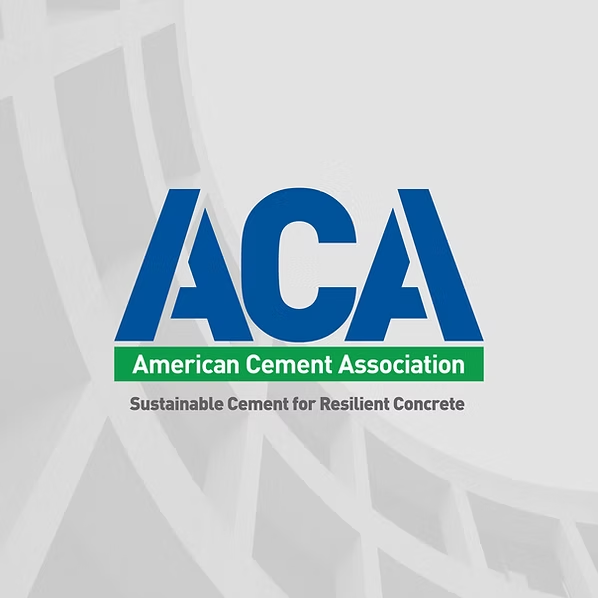Continental Cement Company
 Continental Cement, a QUICKRETE Company, is reducing the carbon intensity of operations with alternative fuels and increased onsite energy efficiency, along with producing and promoting portland-limestone cement (PLC).
Continental Cement, a QUICKRETE Company, is reducing the carbon intensity of operations with alternative fuels and increased onsite energy efficiency, along with producing and promoting portland-limestone cement (PLC).
ACA member company Continental Cement produced a 20% portland-limestone cement, one of the lowest carbon footprint PLCs in the industry, for field application research. Partnering with the Minnesota Department of Transportation and National Road Research Alliance, Continental is testing this lower-carbon cement option for future transportation infrastructure. Portland-limestone cement is a blended cement with a higher limestone content, which results in a product that has similar performance characteristics as traditional portland cement, but with a reduced carbon footprint.
The MnDOT study will provide real-world data about how this cement performs in harsh exposures, which is needed to move this cement into everyday use. An established industry leader in championing lower carbon solutions, Continental Cement has converted 100% of its annual production to portland-limestone cement, and its manufacturing facilities can readily transition to produce PLC with up to 20% limestone.
In addition, using lower-carbon alternative sources of energy such as biomass and waste-derived fuels instead of fossil fuels is doubly beneficial as it reduces greenhouse gas (GHG) emissions. Continental Cement invested in Green America Recycling — a waste treatment, storage, and disposal facility at its Hannibal, Missouri, cement plant — to efficiently replace coal with a locally available material that serves as a lower-carbon fuel. Continental Cement currently has a 42% fuel substitution rate, and in 2019 used more than 130,000 tons of discarded materials as fuel throughout its two locations. The company is working to expand the Green America Recycling facility at its Davenport, Iowa, cement plant to increase the utilization of non-coal fuels, reducing landfill waste, and significantly cutting net emissions.
Continental Cement is also working with the utility companies they rely on to have incoming power to the plant be from renewable energy sources. In 2021, MidAmerican Energy provided 86% of the power for the Davenport, Iowa, plant from renewable electricity sources such as wind and solar. The CO2 saved in 2021 alone from using renewable electricity exceeds 150,000 tons.
Continental Cement is continually innovating to reduce emissions through alternative fuel use, energy efficiency and through producing a more sustainable portland-limestone cement than what is offered today, while working with partners such as MnDOT and Green America Recycling. Our participation in these projects is a great example of QUICKRETE’s commitment to become the most socially responsible construction materials company.
Increasing the use of lower-carbon fuels, continuing to push renewable sources of energy, and producing lower-carbon cement blends are all key actions for cement producers in ACA’s Roadmap to Carbon Neutrality. Continental Cement is supporting the industry’s ambition to lower its carbon footprint and address climate change.
